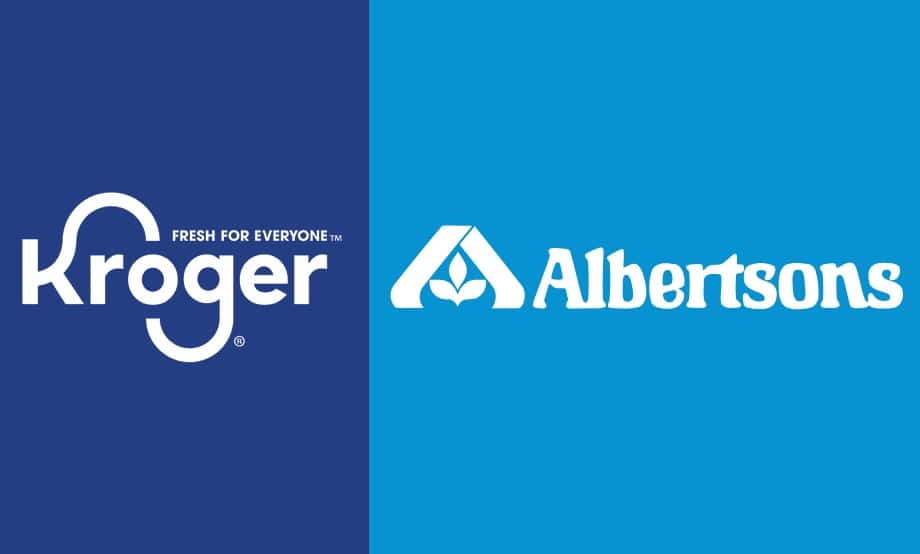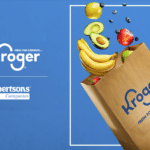
Kroger says its planned merger with Albertsons will result in lower grocery prices. A second state where the retailer does business now begs to differ.
Colorado has become the latest state to file a lawsuit seeking to block the country’s largest traditional grocery chain’s purchase of the second-largest chain, even as federal regulators continue their own scrutiny of the deal.
Kroger and Albertsons “have decided that collusion is more profitable than competition,” the lawsuit alleges. “The proposed merger would lead to higher prices, worse service, lower quality, and reduced choice for consumers.”
The lawsuit from Colorado Attorney General Phil Weiser comes a month after his Washington state counterpart filed his own lawsuit seeking to stop the deal. That move raised some eyebrows and earned Washington some criticism for jumping the gun, since the Federal Trade Commission has been examining the plan for more than a year and has yet to issue its own decision on whether to approve or challenge the merger.
Let them do what they will do, Colorado’s lawsuit suggests, as it makes clear that the Attorney General has his own state’s interests in mind.
“Kroger is the biggest supermarket operator in the state, and (Albertsons) is third,” the lawsuit points out. “Combined, they would control more than half of the supermarket industry in Colorado.” Some communities in the state where there is a Kroger-owned King Soopers or City Market and an Albertsons-owned Safeway would find themselves at the mercy of a grocery monopoly post-merger, the lawsuit alleges, and would have to travel more than 60 miles to get to a store not owned by Kroger. Other communities “would face a Kroger/Walmart duopoly.”
“The elimination of competition between these two industry giants will also eliminate the many benefits to Coloradans that accompany that competition, and will lead to higher prices and diminished quality of the shopping experience,” the suit claims.
Months before their planned merger was announced, the lawsuit alleges that Kroger and Albertsons were already colluding, “despite being competitors.” In early 2022, when unionized King Soopers employees went on strike, the competing retailers allegedly entered into an agreement whereby Albertsons pledged not to hire striking King Soopers workers. “This unlawful arrangement” highlights “the risk of additional concentration in the grocery industry,” the lawsuit alleges.
The suit goes on to note that “many consumers check prices — including promotions and available coupons — at their nearest Kroger and (Albertsons) stores before deciding where to shop.” As competitors, the two retailers “constantly monitor each other’s prices and they compete in all aspects of grocery operations including on price, customer service, store quality, shopping experience, product depth and variety, availability of local supply, private label brands, customer loyalty and rewards programs, and data analytics. Consumers benefit greatly from this competition.”
Allowing for the creation of a grocery powerhouse would not only reduce existing competition, but make it more difficult for new competitors to gain a foothold, the lawsuit argues.
The lawsuit reserves its most withering criticism for Kroger’s plan to preserve competition by selling overlapping stores to C&S Wholesale Grocers. “This proposed ‘fix’ does not fix anything,” it sneers. “C&S is not well situated to be a viable competitor because of its complete lack of experience as a national-scale retailer, lack of any experience in Colorado, and its lack of the infrastructure needed” to successfully operate Kroger’s castoffs. C&S “also has a troubling track record,” as it has “previously bought retail stores only to eventually sell them off.”
The case goes on to suggest that C&S is being set up to fail. Kroger and Albertsons would keep more than 200 of their best stores in the state, while selling off 52 of “the worst performing and least desirable stores” to C&S. 50 of those stores would be current Safeway locations which, under the terms of the agreement, C&S would rebrand as Albertsons, “a largely unknown brand in Colorado with low customer affinity, mostly associated with failure.”
And the specter of Haggen is cited, as another retailer that failed after buying Albertsons’ castoffs when Albertsons bought Safeway nearly a decade ago. One of Haggen’s complaints was that Albertsons engaged in dirty tricks, setting up the divested stores to fail. The lawsuit suggests something similar could occur with C&S.
The lawsuit was filed one day after Kroger issued a cheery announcement promising lower prices if and when the deal goes through, citing as evidence the price cuts it says it made after previous acquisitions. “We are disappointed in Attorney General Weiser’s premature decision to file a lawsuit while the merger is still under regulatory review,” the company said in a statement after the Colorado lawsuit was filed, promising to “vigorously defend this in court because we care deeply about our customers and the communities we serve.”
But Weiser is unconvinced. “After 19 town halls across the state, I am convinced that Coloradans think this merger between the two supermarket chains would lead to stores closing, higher prices, fewer jobs, worse customer service, and less resilient supply chains,” the Attorney General said in a statement when announcing the lawsuit. Back when Albertsons and Safeway merged, “stores closed, jobs were lost, consumers suffered, and the divestiture failed miserably to preserve competition. We won’t risk another such failed divestiture and we will fight hard to preserve competition.”
So Kroger may be promising lower prices ahead. But with two states now challenging its planned purchase of Albertsons, other states conducting their own investigations, and a reportedly skeptical FTC yet to weigh in, Kroger and Albertsons shoppers may never have a chance to find out if fewer choices are really better.
















The parallels between C&S and Haggen failure are noteworthy. C&S only operates 23 stores with little retail experience to be successful as a retailer. This lawsuit and the one from WA clearly explain why this is not a viable solution. You can’t unscramble the egg once this is done just like you couldn’t with Haggen (where now there is less competition due to its failure and stores still lie vacant 9 years later).
The difference being, this company has existed and has already shown that they can find others to buy and run the stores (that’s why they have only a small number now, they sold off the majority of what was acquired from the Grand Union bankruptcy to other chains).
So, that way they get the stores to groups that can actually run them, unlike this other store that couldn’t.
Then that plan should be laid out now before approving this merger and/or Kroger should sell directly to those other buyers. Admitting that is how C&S has done it in the past is another reason for this merger to not be approved. The WA lawsuit sites examples of how C&S did those sell-offs previously and the failures it caused.
Albertsons should’ve sold to Ahold-Delhaize (AD) whom they met with. That would’ve alleviated the massive problems with this merger from Colorado westward since AD doesn’t operate there. Then Kroger could’ve bought the stores that would’ve needed to be divested from PA through New England and finally get a presence there. It would’ve been a win-win-win for all parties.
Admitting that they did it before and it worked out (not sure what the Washington thing supposedly says about failing, but they were nowhere near Washington, and where they were didn’t see such a failure) means that if they could do it once, they could do it again.
Just like with the Grand Union setup, where stores were sold off to many different chains, it seems that would be possibly needed here depending on which ones are in which areas, or willing to expand to those areas (if someone like Ahold would actually do that for the western areas).
They also retained a number of stores back then and kept them running for over a decade before finally selling off the last batch to Tops.
I don’t remember any actually failing, any more than you would say any store failed when they opt to close a location here or there due to that specific store not doing well (or, in at least one case, due to a 1960’s era store that was totally flooded in a hurricane, which few, if any, chains would put the money in to rehabilitate).
Certainly, your final idea would work if both companies were willing – could actually just split/sell off a couple chains (Shaw’s and Acme primarily) to Kroger first, then sell the remainder to Ahold (with maybe some issue in the small Safeway network around DC, since both Ahold and Kroger have some stores in that region).
After I posted my response, I read CO’s 41 page lawsuit and 78 page motion for preliminary injunction. Prior to that I had read WA’s 43 page lawsuit. It took several hours. To anyone interested in this merger, I would encourage them to read them to paint the whole picture of why they’ve been filed. It’s much more nuance than one can get from news articles. All their issues with C&S are outlined there even with the many redactions they put in. C&S potentially selling the stores off for pieces or real estate goes to the heart of their concerns they outline (among other things). Also, in Portland, Las Vegas, Denver, Seattle and other areas, there are no suitable buyers in those markets. They are the 2 main traditional supermarkets in those areas. They are well-established with massive market share. Hence, another reason for their opposition to this.
After reading the lawsuits and recent news re this merger a picture is coming into focus:
1/15/24: WA files suit
1/15/24: Kroger/Albertsons move merger closing to August (this is going to take longer than planned due to these lawsuits)
2/5/24: Gary Millerchip, a key leader for the new company, steps down and goes to Costco (sees writing on wall?)
2/13/24: Kroger/Albertsons send out press release to reiterate how they ‘lower prices’
2/14/24: CO files suit and indicates on page 2 of the motion for preliminary injunction that:
-Kroger/Albertsons knew this suit was coming (likely why they timed their ‘lower prices’ press release the day before which has now been buried by news of this lawsuit)
-Indicates there is an agreement with the FTC on a deadline for 2/28/24 that they will not close the merger before then. If there is other legal action, maybe that’s why that deadline is there.
If the FTC files suit, it is highly unlikely that suit and possibly even the state ones would be resolved by August due to the complexity of this transaction. It is arguably more complex than the JetBlue-Spirit court case that took 10 months from filing to a court decision to block it.
Also there are 3-4 examples given in the CO filings of how Kroger/Albertsons are trying to tweak, in different ways, their divestiture package without C&S agreeing to those tweaks. It’s creating an unstable process.
Uh, if C&S buys the stores and sells them off, they are selling them off to someone WHO WILL BE A COMPETITOR of the new Kroger/Albertsons!
If instead, they choose to keep and run the stores, that WOULD BE A COMPETITOR.
Thus, in either case there is still another option out there, just under a (possibly) different name (since if C&S runs them it’s still Kroger and Albertson’s, just with one brand having a different ownership than it does now).